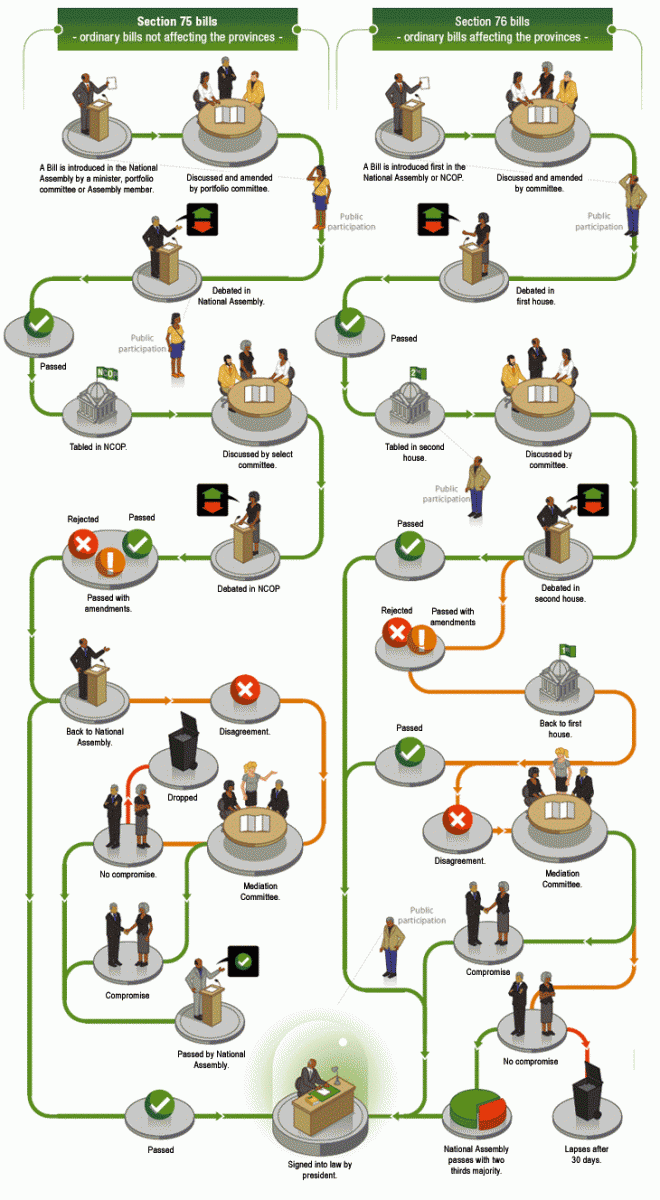Section 43(a) of the Constitution vests the legislative authority of the national sphere of government in Parliament. This confers on the National Assembly the power to consider, pass, amend or reject any legislation before the National Assembly and to initiate or prepare legislation, except Money Bills. It also confers on the National Council of Provinces the power to consider, pass, amend, propose amendments or reject any legislation before the council and initiate or prepare legislation falling within a functional area listed in Schedule 4 of the Constitution or other legislation referred to in Section 76(3), except Money Bills.
The Constitution distinguishes between four categories of Bills:
- Bills amending the Constitution (Section 74);
- Ordinary Bills not affecting provinces (Section 75);
- Ordinary Bills affecting provinces (Section 76); and
- Money Bills (Section 77).
Whilst any of these categories of Bills may be introduced in the National Assembly, only Bills referred to in Section 76(3) of the Constitution may be introduced in the National Council of Provinces.
Money Bills, such as the Appropriation Bill and the Division of Revenue Bill, may only be introduced in the National Assembly and not in the National Council of Provinces.
The Constitution and the Rules of the National Assembly and National Council of Provinces outline the processes that Parliament must follow when passing each category of Bills. Furthermore, Section 18(1) of the Traditional Leadership and Governance Framework Amendment Act, 2003 (Act 41 of 2003), obliges the Secretary to Parliament to refer any Parliamentary Bill relating to customary law or customs of traditional communities to the National House of Traditional Leaders (NHTL) for comment before it is passed by the House of Parliament in which it was introduced. The NHTL has 30 days to comment on a Bill so referred.
As the representative of the people of South Africa, Parliament realises the importance of processing and/or passing quality legislation aimed at improving the quality of life of the people and involving the public in the processing of legislation. To this end, it plans to develop a legislative model to guide members of parliament and staff in the processing of legislation.
The main aim of the model is to enhance the law-making processes and procedures of Parliament to enable the institution to pass quality laws that will improve the quality of life of all.

Source: South Africa Yearbook 2022/23
Related links




